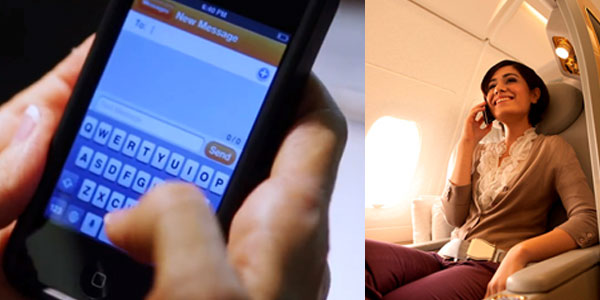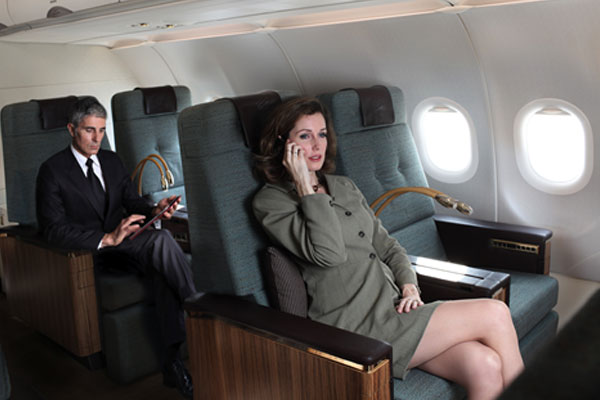
Following last week’s well-documented Federal Communications Commission (FCC) vote to launch a public review into the ban on the use of cell (mobile) phones in-flight, the debate surrounding how an overturning of the ban would impact the passenger experience has intensified. While it has become clear that the general public has serious reservations about allowing passengers to use their cell phones while they are in the air, the US Department of Transportation has already said it is looking into the possibility of banning in-flight voice calls.
However, the opinion of the airlines is more divided and, unsurprisingly, the leading suppliers in the sector have made their support for the removal of the ban far clearer.
Speaking to FTE, Véronique Blanc, Chief Technology Officer at OnAir, said: “The rule is outdated and when it was introduced there were fears about interference, safety and so on, which isn’t the case now. This (in-flight mobile connectivity) is something that people are looking for and there’s evidence in the market that this is the case.”
The line taken by Panasonic Avionics is very similar. Having stated that mobile connectivity would be “good news for passengers”, Chris Lundquist, Vice President of Corporate Strategy, added: “Whether they use onboard Wi-Fi or their own mobile devices, passengers should be able to remain connected”.
The real issue: in-flight voice calls

However, the overall debate focusing on the use of cell phones onboard masks the fact that the real issue the general public has is specifically with the potential introduction of voice calls. Recognising this, Delta Air Lines and Southwest Airlines have already said they will not allow voice calls, but JetBlue has said that it’s own policy will be customer-driven.
And this point – that airlines will have a choice on the matter even if the existing ban is overturned – is vital, according to OnAir’s Blanc. “There are systems on aircraft that allow for the voice component to be turned off if the airline wishes. It’s the airlines’ prerogative,” she said.
Outside of the US, Qatar Airways provides an example of a carrier that allows passengers to use their cell phone to send SMS or MMS messages, and to browse the Internet and check emails, without allowing them to make calls. On the other hand, on some of its flights, Emirates allows passengers to use their phones just as they would on the ground, including making voice calls.
Blanc continued: “We’ve been in operation for over six years and we’ve never heard of a passenger complaining about this. Also, we know from the statistics that cell phone use in-flight is not dissimilar to using it in a ‘normal’ environment – they are mostly used for messaging and browsing, and the average call lasts for around just two minutes.”
Gogo – another onboard connectivity provider – makes a very similar point. While it recently launched its new ‘Text & Talk’ service, Ash ElDifrawi, the company’s Chief Marketing Officer, explained: “We see this as more of a text messaging product for commercial airlines in the United States”.
Making a clearer case for cell phone use onboard

So, as the debate surrounding the use of cell phones in-flight continues to simmer, it is clear that efforts need to be made to ensure that those outside the industry know exactly what they are arguing for and against. In spite of what the mainstream media would have people believe, the question should not be whether to lift the ban on cell phones or to leave it in place, but rather how allowing mobile phone use onboard can benefit passengers.
The concerns around allowing voice calls in-flight are well founded, and for many passengers, having a fellow passenger talk relentlessly throughout a flight would surely take away from the overall experience. However, for that same passenger, being able to access SMS messages, emails and the Internet via their handset could be a huge bonus.
Last week’s FCC vote enables the public to offer their own views on the debate, which means now is the time for the airlines and suppliers to make the point that this is not a black and white, ‘yes’ or ‘no’ issue, but an opportunity for passengers to dictate where the line should be drawn on cell phone use in-flight.






